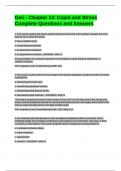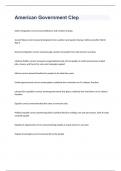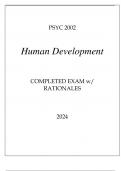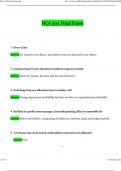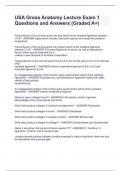Tentamen (uitwerkingen)
Geri - Chapter 13: Copin and Stress Complete Questions and Answers
- Vak
- Instelling
Geri - Chapter 13: Copin and Stress Complete Questions and AnswersGeri - Chapter 13: Copin and Stress Complete Questions and AnswersGeri - Chapter 13: Copin and Stress Complete Questions and AnswersGeri - Chapter 13: Copin and Stress Complete Questions and AnswersGeri - Chapter 13: Copin and Stress...
[Meer zien]
